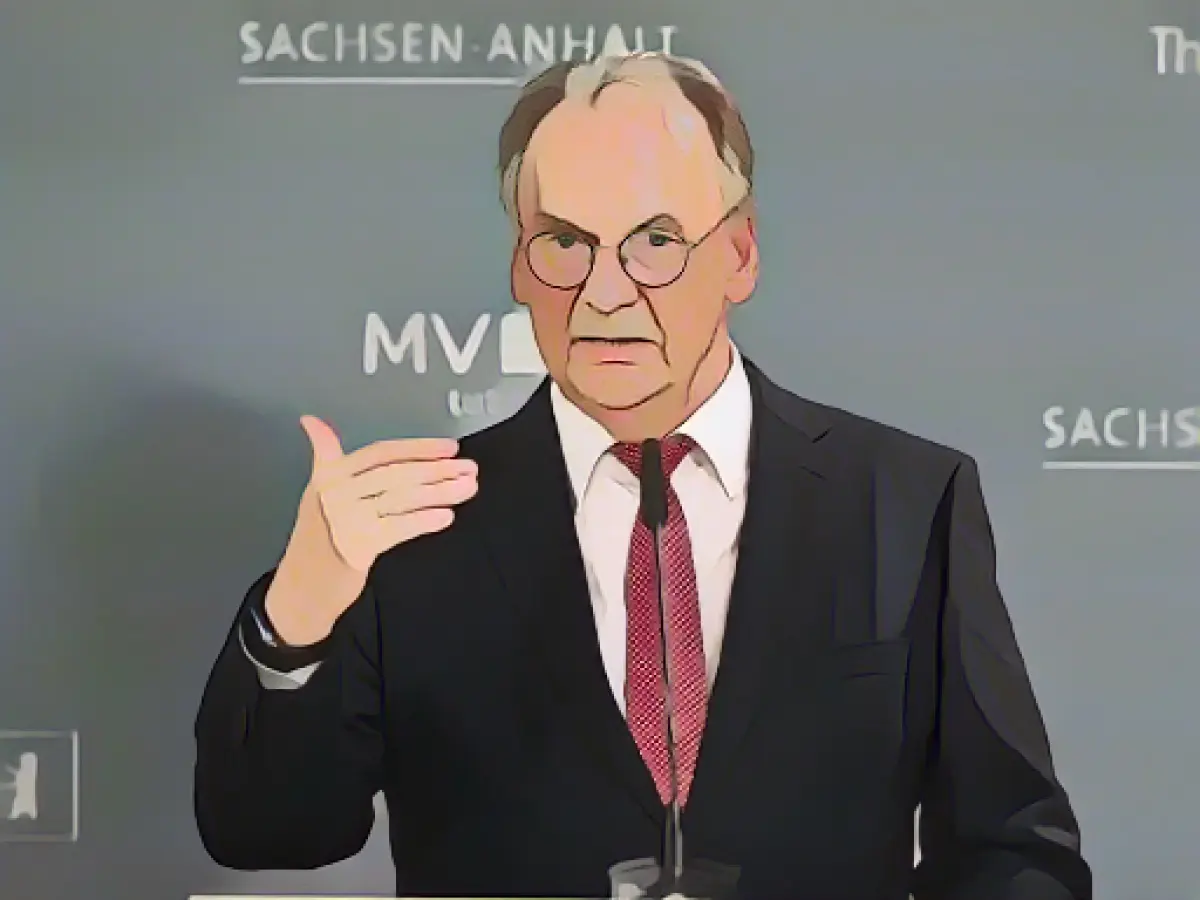Debt Brake Reform on the Table for CDU Leaders
Chancellor contender Friedrich Merz and CDU Minister Presidents Reiner Haseloff and Michael Kretschmer are pushing for reforming the debt brake, despite their traditionally strict stance on fiscal discipline. "The debt brake remains essential," Haseloff stated to Stern magazine. "But constitutionally compliant methods are necessary to fund critical future investments in the economy, technology, and science."
Kretschmer echoed these sentiments to the "Frankfurter Allgemeine Sonntagszeitung," suggesting that the CDU/CSU would support the federal government in implementing real austerity measures. A successful negotiation process could result in a "German pact" and a possible review of the debt brake. This austerity plan would require limiting further social spending increases.
The debt brake, embedded in Germany's Basic Law, grants the federal government limited borrowing powers. Exceptions include instances of natural disasters and exceptional emergencies, such as the recent coronavirus pandemic and the Ukraine conflict.
Reforming the debt brake is currently not a priority for the traffic light coalition government. Government spokesperson Steffen Hebestreit confirmed Friday's announcement in Berlin.
Diverging viewpoints within the coalition government at the national level surfaced following the Federal Constitutional Court's 2021 budget ruling. While Minister of Finance Christian Lindner (FDP) vehemently opposed a relaxation, the Greens and SPD expressed a desire for future debt brake discussions. CDU/CSU parliamentary group Parliamentary Secretary Thorsten Frei opposed altering the debt brake.
The rationale behind the CDU's call to invest constitutionally while maintaining the debt brake stems from economic and technological modernization needs. The Bundesrat and Federal Government may consider drastic cost-saving measures, excluding further social spending increases, to garner the CDU/CSU's support for such reforms. This might spark wider conversations about changing the debt brake.
The ensuing debate about the debt brake in Germany encompasses various political and economic factors:
- CDU Stance and Internal Discussions:
- While CDU leaders uphold budget discipline, some minister-presidents advocate for revisiting the debt brake's rules.
- Both sides hesitate to offer clear stances, citing the economic challenges facing the federal states.
- Mercz's Flexibility:
- Merz, a frontrunner for Chancellor, is open to relaxing debt brake regulations to finance defense expenditures. However, he advocates patience in pursuing resulting savings and growth.
- Austerity Measures:
- The CDU proposes economic austerity measures, such as reduced subsidies, slimmed-down bureaucracies, and a critical look at social expenditures.
- Both the SPD and Greens advocate for easing debt brake restrictions to allow investments and social expenditure expansion. They suggest a 10% business investment incentive, enhanced research and development spending, and increased public welfare projects.
- Economic and Political Context:
- Germany’s prolonged economic crisis, high military expense, and infrastructure modernization necessities have fueled debates over the debt brake's effectiveness.
- Public opinion has shifted, with 55% of Germans now favoring reform or abolition of the debt brake, according to a recent Forsa survey.
- Future Coalition Configurations:
- Depending on the election results, either the SPD or Greens will form a coalition with the CDU/CSU. Both scenarios provide the potential for altering the debt brake.
In conclusion, while the CDU upholds the debt brake's importance, internal and external pressures may pave the way for reform. Addressing critical economic challenges and public opinion dynamics indicate that modifying the debt brake remains a plausible option, particularly during coalition negotiations. Balancing fiscal responsibility with the need for investments and increased social expenditure is essential in drafting any viable reform strategy.








